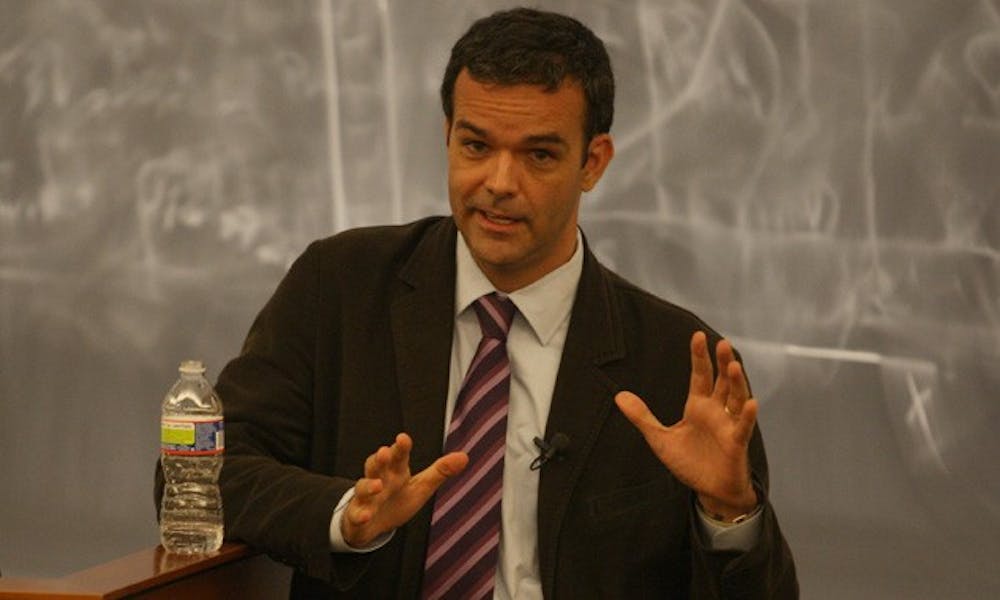Washington, D.C. correspondent Nick Spicer knows first-hand that Al-Jazeera is a news network for the “global everyman” that values on-the-ground reporting undiluted by cultural biases.
Speaking Monday evening at the Sanford School of Public Policy, Spicer, a correspondent for Al-Jazeera English, discussed the ways in which Al-Jazeera, the most watched news channel on Youtube, has attempted make news more objective and less “cookie-cutter.”
Spicer has been reporting internationally for 15 years previously for organizations including National Public Radio, The Economist and CBC Television. He said although many Western news media rely on domestically born journalists who may harbor implicit cultural biases to report in foreign countries, Al-Jazeera is committed to providing unfiltered news.
“The aim is to have indigenous reporting and no imperial or post-imperial center, a kind of transcendental signifier, that explains everything on the planet,” Spicer said. “We want the people who are living in these places to tell their own stories.”
This approach is the “million-dollar gamble” that Al-Jazeera has undertaken since its inception in 1996 as an Arabic news and current affairs satellite television channel headquartered in Doha, Qatar. Rather than use experts and politicians to color the news, Spicer said Al-Jazeera strives to be “shamelessly internationalist” in its global outlook. Indeed, it is the only global news network stationed in the southern hemisphere and maintains correspondents in many areas neglected by Western media outlets. Spicer noted, for example, that when Israeli forces intercepted a flotilla of boats bound for Gaza in May, killing nine passengers and sparking widespread international condemnation, Al-Jazeera was the only network with reporters on the boat; other news stations were still in Jerusalem.
This “ground-up” reporting style is part of what Spicer referred to as “insightful and not inciteful journalism.”
Another example the correspondent pointed to as illustrative of the network’s approach was its coverage of Gainesville, Florida pastor Terry Jones’ plan to burn Qurans on 9/11, which Spicer helped cover.
“We wanted to show the world what the U.S. is really about—to show that the University of Gainesville was admitting many Muslim students and that 20 or so Muslim men said, ‘Look, for half a century, our people have been looking for freedom of expression, and [so] we appreciate the First Amendment,’” he said. “We wanted to show a more fair representation of America.”
Spicer added that he believes many American news outlets consistently fail to incorporate valuable first-person sources in their coverage.
“[Without first-person sourcing], there is no ability to compare points of view,” he said.
Spicer also criticized the American news media’s coverage of the lead-up to the Iraq War as cursory.
“The media didn’t do its job in the prelude to the Iraq War,” he said. “They didn’t go to the American people and ask hard questions about weapons of mass destruction, but instead beat the war drum.”
Get The Chronicle straight to your inbox
Sign up for our weekly newsletter. Cancel at any time.

